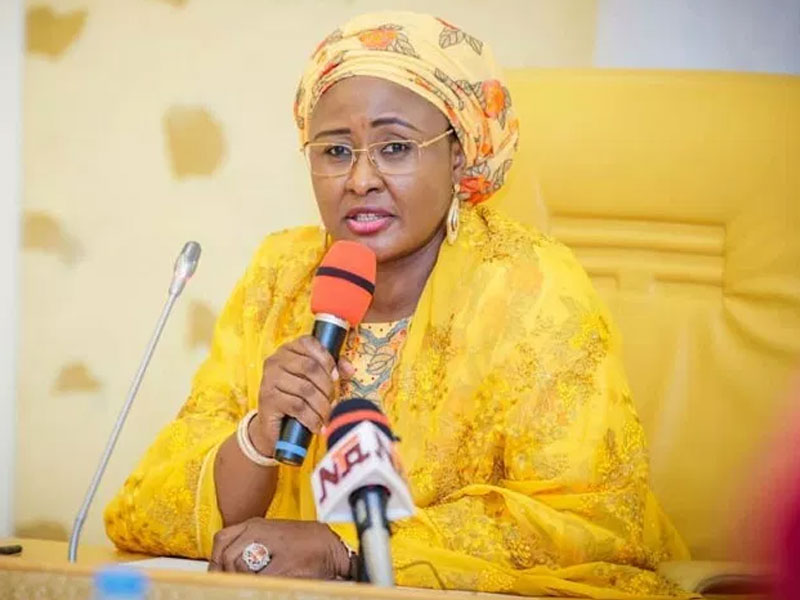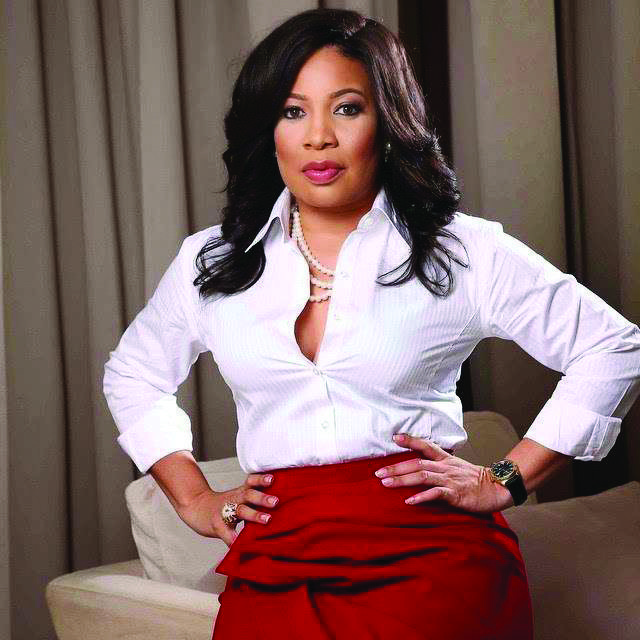Communiqué issued at the end of the Summit on Emerging Trends in the Role of the First Lady in National Development organized by the Office of the First Lady of Nigeria in collaboration with Women and National Development (WAND) at Conference Centre, State House Abuja on 8th April 2021.
PREAMBLE
The Office of the First Lady of Nigeria in collaboration with Women and National Development (WAND) organized a day summit at the Conference Centre, State House, Abuja on 8th April 2021, to deliberate on Emerging Trends in the Role of the First Lady in National Development. The summit was attended by wives of State Governors, key Government Officials, Non-Governmental Organizations, as well as United Nations and other international institutions
DELIBERATIONS
The Summit was chaired by Dr. (Mrs) Betsy Obaseki, First Lady, Edo State, attracting presentations including a Keynote by HE Erelu Bisi Fayemi, First Lady, Ekiti State, Dr. Mairo Almakura Special Assistant to the President on African First Ladies and Dame Pauline Tallen, Minister of Women Affairs. The Summit dovetailed into a panel discussion involving Dr. Gloria Diri, First Lady Bayelsa State, Dr. Zainab Bagudu, First Lady Kebbi State, Dr. Amina Sani Bello, First Lady, Niger State, Dr. Olufolake Abdulrazaq, First Lady Kwara State and Dr. Otive Igbuzor, Development Expert. Mr. Kachi Okezie, of CTP International was the moderator.
Summit speakers called for a change in attitudes and mindsets towards First Ladies. Women who occupy the positions have a lot to offer beyond traditional roles as wives and mothers. It was also observed that not all positions or functions in government require constitutional backing. The Office of the First Lady at the National and State levels is indispensable because of the role it plays in facilitating services for the poor and vulnerable, its ability to respond to the needs of the most marginalised such as women and children, and its capacity to build bridges between the people and political leadership. The efforts that First Ladies make in mobilising political machinery, the vast majority of these being female voters, is also another indication of how valuable the role is. Many countries around the world and across Africa have formally recognised the Office of the First Lady. The African Union has facilitated the Organisation of African First Ladies for many years, recognising the unique and important roles that they play. Here in Nigeria, the Office of the First Lady has gradually and progressively evolved over the years and First Ladies have contributed in no small measure towards the development and growth of the country.
RECOMMENDATIONS
The Summit identified several strengths, weaknesses, opportunities and threats associated with the position of the First Lady, discussed their impact on those occupying the position and came up with the following recommendations:
§ Summit affirmed the tremendous achievements made by Her Excellency Dr Aisha Buhari, her predecessors, and Wives of the State Governors in Nigeria and resolved that policy and administrative measures are required at National and State levels to formally accommodate the existence of this indispensable office as a complement to inclusive governance. This will also foster more accountability and transparency in governance.
§ Summit encouraged every First Lady to champion an issue or a cause. It was also noted that projects should be structured as sustainable Legacy Projects and not programs that will fold after the initiator leaves office.
§ Summit advised that First Ladies should be focused, passionate, knowledgeable and resourceful and engage in projects that are impactful
§ Summit suggested that First Ladies be more visible in order to highlight their contributions and showcase how important their leadership is at national and sub-national level
§ Summit discussed the dismal numbers of women in leadership and decision-making in Nigeria, and challenged First Ladies to serve as mentors and champions in order to open doors for more women in public life.
§ Summit raised the importance of First Ladies as role models for women and youth. To this end, and in order to avoid negative perceptions and stereotypes, First Ladies were encouraged to live up to expectations by being approachable and inclusive.
§ Summit pointed out that projects implemented by First Ladies should not be referred to as ‘Pet Projects’ because such terminology trivializes the importance of the initiatives.
§ Summit urged First Ladies to support advocacy initiatives that will facilitate laws and policies to ensure lasting institutional change to tackle key social issues such as Gender-Based Violence, Health, Education of the Girl-Child and other important issues.
§ Summit highlighted the importance of more research, data, and information on the roles and impact of First Ladies. First Ladies were also advised to document their work and share their experiences.
§ Summit called for partnerships with government agencies, civil society, and development partners to strengthen and scale up the work of First Ladies.
§ Summit stressed the need for a culture of continuity in governance. Efforts should be made to sustain worthwhile social intervention programs initiated by First Ladies, not everything needs to be thrown away when governments change.
§ Summit agreed that there should be mentoring and orientation programs for First Ladies as well as ongoing learning and knowledge sharing. This will foster a greater understanding of expectations, norms, and values that will make the role easier.
CONCLUSION
The Summit participants confirmed that without a doubt, First Ladies in Nigeria have contributed significantly to national development. In spite of all the limitations that they have faced, they have continued to be a reliable means of grassroots mobilisation, community engagement, and advocacy on behalf of the voiceless and vulnerable. Nigeria, therefore, needs to move with the times and formally acknowledge this critical role. This will enable more accountability and provide an opportunity for worthwhile initiatives to be sustained for the benefit of the people. Meanwhile, Nigerian First Ladies will stay focused on their respective roles and responsibilities, engage in peer learning and collaborations, build coalitions, and continue to support their husbands to achieve their governance goals.
The Summit commended the First Lady of Nigeria for its convention on the sidelines of the successful public presentation of Aisha Buhari: Being Different, written by Dr. Hajo Sani, and called for similar opportunities in the future.
Dr. Batsy Obaseki
First Lady, Edo State
Summit Chair
Dr. Hajo Sani
Senior Special Assistant to the President
on Women Affairs and Administration
Office of the First Lady




